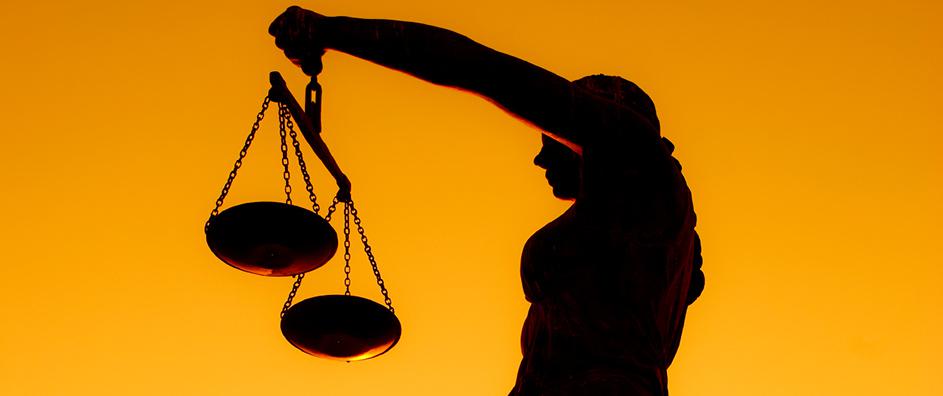In the tempestuous sea of human experience, justice emerges as a celestial beacon—an unwavering Daystar of hope and renewal amidst tumult. For adherents of the Baha’i Faith, the pursuit of justice is not merely an abstract principle; it is a call to action that resonates profoundly within the very essence of their beliefs, urging them to transform society through principles rooted in compassion and equity.
The Baha’i teachings illuminate a path toward achieving true justice, beckoning individuals to embark on a quest for unity, healing, and social construction. This call to action is richly metaphorical, evoking images of individuals reaching toward a star that promises illumination in dark times. This is not a journey of mere idealism but of practical engagement with the world’s complexities, requiring discernment, dedication, and a resounding commitment to collective betterment.
At the crux of Baha’i teachings lies the notion that justice transcends mere retribution; it is framed as a positive force for societal transformation. This perspective requires an understanding that to “reach for the Daystar of Justice,” individuals must engage in ethical deliberation, ensuring that their actions are imbued with a profound sense of moral responsibility. Justice is seen as the bedrock upon which a flourishing society is constructed, vital for fostering trust and cooperation among diverse communities.
The metaphor of reaching for the Daystar implies an active pursuit, a conscious effort to mitigate injustices that pervade our world. Baha’is are urged to reflect upon the systemic inequalities present in social structures, recognizing that the path to justice begins with the awareness of these disparities. In this context, justice is a reflective process, prompting individuals to evaluate their own roles within societal frameworks—recognizing privileges and dismantling barriers that hinder the oppressed.
A salient dimension of this journey necessitates the cultivation of individual virtues. Personal integrity, honesty, and compassion are indispensable attributes that Baha’is must embody in their efforts to advocate for justice. When individuals strive to mirror these virtues, they not only uplift their own spirits but also serve as catalysts for broader societal advancements. This virtuous cycle fortifies communal ties, nurturing environments where justice can thrive.
A necessary corollary to the pursuit of justice is the commitment to unity—another pivotal concept within Baha’i teachings. Unity fosters the recognition of shared humanity in an increasingly fragmented world, promoting collaborative action rather than divisiveness. Baha’i Principles exhort followers to embrace diversity, forging alliances that transcend ethnic, religious, and socioeconomic boundaries. Within this collective endeavor, justice becomes a communal aspiration, prompting a symbiotic relationship where the elevation of one contributes to the elevation of all.
Moreover, the implementation of justice calls for systematic change. Baha’is are urged to engage with sociopolitical structures actively, advocating for reforms that dismantle injustices entrenched in governance and institutional policies. This entails leveraging education, public discourse, and political engagement—ensuring that the Daystar of Justice is not only a distant aspiration but a palpable reality that governs the institutions of society.
Education serves as a pivotal axis in this endeavor. As Baha’is immerse themselves in the acquisition of knowledge, they equip themselves with the tools necessary for informed action. Education enlightens understanding, fostering critical thinking that allows individuals to question existing norms and challenge oppressive paradigms. This knowledge empowerment is not merely self-serving; it is a communal asset that can yield transformative outcomes, reinforcing the collective commitment to justice.
Furthermore, the pursuit of justice demands perseverance in the face of adversity. The metaphor of reaching suggests an ongoing effort—a recognition that achieving justice is an evolving process, fraught with challenges. Baha’is must remain resilient, embodying the spirit of determination that characterizes advocates for justice across history. This resolve transforms obstacles into stepping stones, celebrating victories that may initially appear small but collectively coalesce into monumental change.
Alongside resilience, a profound understanding of love as a driving force behind justice is fundamental. This love is not confined to fleeting emotions; it manifests as an unwavering commitment to lift others, extending kindness and support to those who suffer. In embodying this principle, Baha’is actively construct a world where justice flourishes through empathy, understanding, and genuine connection. It is a love that bridges divides, unveiling the rich tapestry of human experiences that together create a shared destiny.
Ultimately, the Baha’i call to action—reaching for the Daystar of Justice—entails a comprehensive engagement with the world’s intricacies while insisting upon the relevance of moral principles in societal transformation. It implores individuals to embrace their roles as agents of change, guided by the aspiration for justice to fuel their actions. As individuals reach for this luminous ideal, they embark on a transformative journey—not solely for themselves but for the betterment of humankind, nurturing the collective yearning for peace, equity, and unity.
In sum, the Baha’i teachings resonate with profound admonitions that incite agency and moral imperative in the relentless pursuit of justice. This metaphoric journey toward the Daystar symbolizes the intersection of personal growth and societal progress, beckoning individuals to act decisively and compassionately to fulfill their collective mission of fostering a just world. The imperative remains: as the Daystar of Justice glimmers in the distance, let each person reach forth, illuminating not only their path but the paths of many who seek solace in the radiance of equity and hope.
